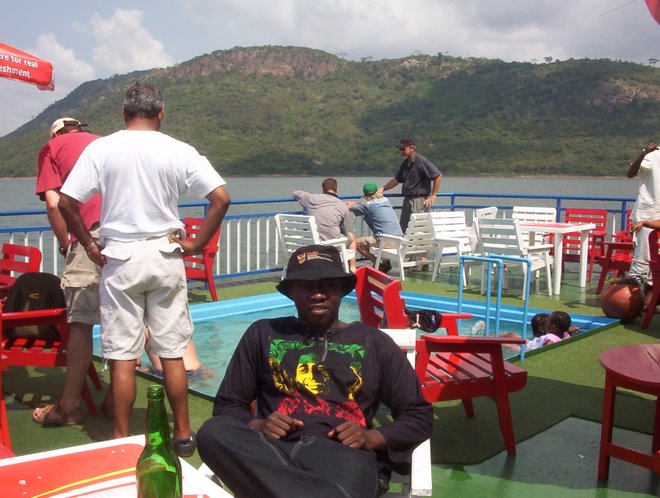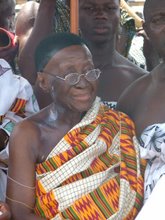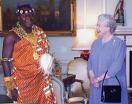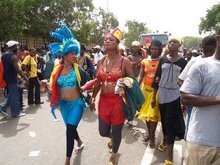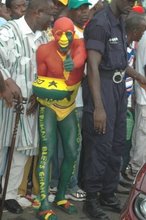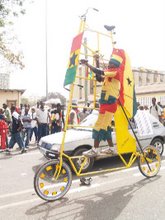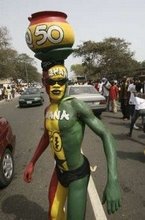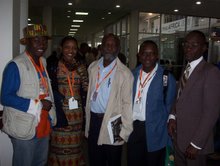W-H-A-A-T!! ¢500 MILLION DEAL 4 KUMASI RADIO PRESENTERS?
WITH amounts ranging between ¢500million and ¢100 million being dangled before some top radio presenters in Kumasi as enticement fees, two tycoons have plunged the radio industry in Kumasi into the biggest poaching exercise ever to hit the Garden City.
The two men, Mr Kennedy Agyapong, Member of Parliament (MP) for Assin North and Mr Kwaku Oteng, Managing Director of Angel Group of Companies, have purchased Ashh 
Ashh FM is being rechristened Time Radio while Mett FM becomes Angel Radio.
The enticement fees are so attractive that the presenters involved are said to be seriously rethinking their next moves.
Names that have cropped up include Kwame Adinkra of Fox FM's morning show, Fox Morning Drive. A source disclosed to Graphic Showbiz that he has been offered a whopping ¢500million to move to Angel Radio. Joe Laka of the sports desk of Kessben FM, the source said, has also been offered ¢400million to transfer to Angel Radio.
Other names being bandied about include Tweneboa Kodua, Sampson K. Nyamekye, Nana Asabre and Kwabena Bobie Ansah all of Hello FM, Kwadwo Marfo of Kapital Radio, Otwinoko of Nhyira FM, Eugene Adu Poku and Chief Bekoe a.k.a. Star Boy of Kapital Radio. They are all said to be on the lists of the new moguls. The source said the least enticement fee being offered is ¢100 million.
Some of them contacted by Showbiz declined to comment, one of them only stating that we are still at the talking stage.
Owners of the two new stations however appear determined to change the fortunes of their various acquisitions and build huge broadcast businesses out of them, hence the juicy enticement fees.
Mr Agyapong purchased Ashh FM from Mr Wilson Arthur, the brother of the owner of Skyy Power in Takoradi. Mr Agyapong is said to be making feverish preparations to move his new property from Pankrono Estate to Amakom, near the former Edward Nassar Buscuit Company premises. Mr Oteng has also began putting things together for Angel Radio to be housed at Abrepo junction at the former premises of Radio Mercury.
The source disclosed that some presenters have already tendered in their resignation letters to their former employers and are poised to join the new ones. The source was, however, unable to name the presenters who have resigned.
Kwame Adinkra, for instance, went off-air for the Christmas holidays and has not been heard again since on Fox FM.
It was gathered that he is currently on holidays in South Africa and that one of the new employers facilitated the travel to prevent others from contacting him.
On the part of Joe Laka of Kessben FM, it was gathered that he is keen to leave Kessben FM but the stationÕs management is reluctant to let him go because his contract elapses in about five months time. Laka was poached from Fox FM to Kessben FM about two years ago and sources say he was offered about ¢150million by the management of Kessben as an enticement fee at that time.
News of the emerging moguls and their intent to poach good presenters from existing stations have sent shivers down the spines of some owners of existing stations.
Some of them, it was gathered, have already sent various delegations including chiefs to Mr Kwaku Oteng of Angel Radio to ask him to stay away from their presenters.
Two years ago when Hello FM and Kessben FM joined the radio scene in Kumasi, a similar scenario emerged. At that time, station owners who did not want their presenters to leave increased their incentives for them.
The Managing Director of Fox FM, Mr Francis Poku a.k.a. Afro, for instance, had to pay huge incentives to presenters such as Kwame Adinkra and Sometimer Otuo Acheampong for them to stay on.
Despite that, Fox FM lost presenters such as Ohene Djan and Tweneboa Kodua to Kessben FM and Hello FM respectively.











